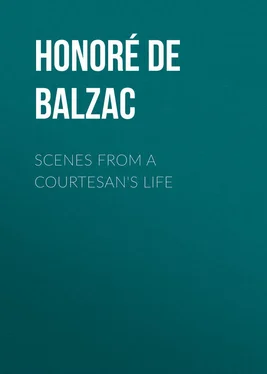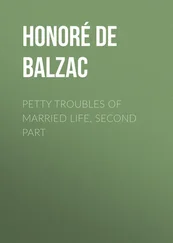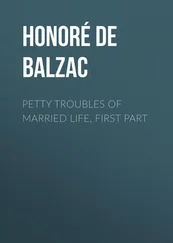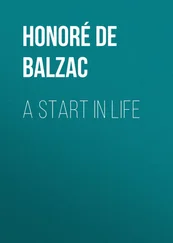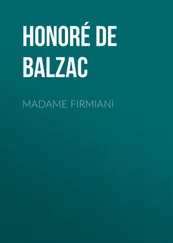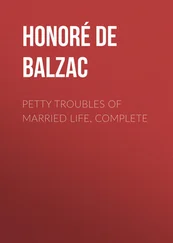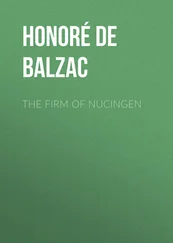Honoré Balzac - Scenes from a Courtesan's Life
Здесь есть возможность читать онлайн «Honoré Balzac - Scenes from a Courtesan's Life» — ознакомительный отрывок электронной книги совершенно бесплатно, а после прочтения отрывка купить полную версию. В некоторых случаях можно слушать аудио, скачать через торрент в формате fb2 и присутствует краткое содержание. Издательство: Иностранный паблик, Жанр: literature_19, foreign_antique, foreign_prose, на английском языке. Описание произведения, (предисловие) а так же отзывы посетителей доступны на портале библиотеки ЛибКат.
- Название:Scenes from a Courtesan's Life
- Автор:
- Издательство:Иностранный паблик
- Жанр:
- Год:неизвестен
- ISBN:нет данных
- Рейтинг книги:4 / 5. Голосов: 1
-
Избранное:Добавить в избранное
- Отзывы:
-
Ваша оценка:
- 80
- 1
- 2
- 3
- 4
- 5
Scenes from a Courtesan's Life: краткое содержание, описание и аннотация
Предлагаем к чтению аннотацию, описание, краткое содержание или предисловие (зависит от того, что написал сам автор книги «Scenes from a Courtesan's Life»). Если вы не нашли необходимую информацию о книге — напишите в комментариях, мы постараемся отыскать её.
Scenes from a Courtesan's Life — читать онлайн ознакомительный отрывок
Ниже представлен текст книги, разбитый по страницам. Система сохранения места последней прочитанной страницы, позволяет с удобством читать онлайн бесплатно книгу «Scenes from a Courtesan's Life», без необходимости каждый раз заново искать на чём Вы остановились. Поставьте закладку, и сможете в любой момент перейти на страницу, на которой закончили чтение.
Интервал:
Закладка:
Happiness has no history, and the story-tellers of all lands have understood this so well that the words, “They are happy,” are the end of every love tale. Hence only the ways and means can be recorded of this really romantic happiness in the heart of Paris. It was happiness in its loveliest form, a poem, a symphony, of four years’ duration. Every woman will exclaim, “That was much!” Neither Esther nor Lucien had ever said, “This is too much!” And the formula, “They were happy,” was more emphatically true, than even in a fairy tale, for “they had no children.”
So Lucien could coquet with the world, give way to his poet’s caprices, and, it may be plainly admitted, to the necessities of his position. All this time he was slowly making his way, and was able to render secret service to certain political personages by helping them in their work. In such matters he was eminently discreet. He cultivated Madame de Serizy’s circle, being, it was rumored, on the very best terms with that lady. Madame de Serizy had carried him off from the Duchesse de Maufrigneuse, who, it was said, had “thrown him over,” one of the phrases by which women avenge themselves on happiness they envy. Lucien was in the lap, so to speak, of the High Almoner’s set, and intimate with women who were the Archbishop’s personal friends. He was modest and reserved; he waited patiently. So de Marsay’s speech – de Marsay was now married, and made his wife live as retired a life as Esther – was significant in more ways that one.
But the submarine perils of such a course as Lucien’s will be sufficiently obvious in the course of this chronicle.
Matters were in this position when, one fine night in August, the Baron de Nucingen was driving back to Paris from the country residence of a foreign banker, settled in France, with whom he had been dining. The estate lay at eight leagues from Paris in the district of la Brie. Now, the Baron’s coachman having undertaken to drive his master there and back with his own horses, at nightfall ventured to moderate the pace.
As they entered the forest of Vincennes the position of beast, man, and master was as follows: – The coachman, liberally soaked in the kitchen of the aristocrat of the Bourse, was perfectly tipsy, and slept soundly, while still holding the reins to deceive other wayfarers. The footman, seated behind, was snoring like a wooden top from Germany – the land of little carved figures, of large wine-vats, and of humming-tops. The Baron had tried to think; but after passing the bridge at Gournay, the soft somnolence of digestion had sealed his eyes. The horses understood the coachman’s plight from the slackness of the reins; they heard the footman’s basso continuo from his perch behind; they saw that they were masters of the situation, and took advantage of their few minutes’ freedom to make their own pace. Like intelligent slaves, they gave highway robbers the chance of plundering one of the richest capitalists in France, the most deeply cunning of the race which, in France, have been energetically styled lynxes – loups-cerviers. Finally, being independent of control, and tempted by the curiosity which every one must have remarked in domestic animals, they stopped where four roads met, face to face with some other horses, whom they, no doubt, asked in horses’ language: “Who may you be? What are you doing? Are you comfortable?”
When the chaise stopped, the Baron awoke from his nap. At first he fancied that he was still in his friend’s park; then he was startled by a celestial vision, which found him unarmed with his usual weapon – self-interest. The moonlight was brilliant; he could have read by it – even an evening paper. In the silence of the forest, under this pure light, the Baron saw a woman, alone, who, as she got into a hired chaise, looked at the strange spectacle of this sleep-stricken carriage. At the sight of this angel the Baron felt as though a light had flashed into glory within him. The young lady, seeing herself admired, pulled down her veil with terrified haste. The man-servant gave a signal which the driver perfectly understood, for the vehicle went off like an arrow.
The old banker was fearfully agitated; the blood left his feet cold and carried fire to his brain, his head sent the flame back to his heart; he was chocking. The unhappy man foresaw a fit of indigestion, but in spite of that supreme terror he stood up.
“Follow qvick, fery qvick. – Tam you, you are ashleep!” he cried. “A hundert franc if you catch up dat chaise.”
At the words “A hundred francs,” the coachman woke up. The servant behind heard them, no doubt, in his dreams. The baron reiterated his orders, the coachman urged the horses to a gallop, and at the Barriere du Trone had succeeded in overtaking a carriage resembling that in which Nucingen had seen the divine fair one, but which contained a swaggering head-clerk from some first-class shop and a lady of the Rue Vivienne.
This blunder filled the Baron with consternation.
“If only I had prought Chorge inshtead of you, shtupid fool, he should have fount dat voman,” said he to the servant, while the excise officers were searching the carriage.
“Indeed, Monsieur le Baron, the devil was behind the chaise, I believe, disguised as an armed escort, and he sent this chaise instead of hers.”
“Dere is no such ting as de Teufel,” said the Baron.
The Baron de Nucingen owned to sixty; he no longer cared for women, and for his wife least of all. He boasted that he had never known such love as makes a fool of a man. He declared that he was happy to have done with women; the most angelic of them, he frankly said, was not worth what she cost, even if you got her for nothing. He was supposed to be so entirely blase, that he no longer paid two thousand francs a month for the pleasure of being deceived. His eyes looked coldly down from his opera box on the corps de ballet; never a glance was shot at the capitalist by any one of that formidable swarm of old young girls, and young old women, the cream of Paris pleasure.
Natural love, artificial and love-of-show love, love based on self-esteem and vanity, love as a display of taste, decent, conjugal love, eccentric love – the Baron had paid for them all, had known them all excepting real spontaneous love. This passion had now pounced down on him like an eagle on its prey, as it did on Gentz, the confidential friend of His Highness the Prince of Metternich. All the world knows what follies the old diplomate committed for Fanny Elssler, whose rehearsals took up a great deal more of his time than the concerns of Europe.
The woman who had just overthrown that iron-bound money-box, called Nucingen, had appeared to him as one of those who are unique in their generation. It is not certain that Titian’s mistress, or Leonardo da Vinci’s Monna Lisa, or Raphael’s Fornarina were as beautiful as this exquisite Esther, in whom not the most practised eye of the most experienced Parisian could have detected the faintest trace of the ordinary courtesan. The Baron was especially startled by the noble and stately air, the air of a well-born woman, which Esther, beloved, and lapped in luxury, elegance, and devotedness, had in the highest degree. Happy love is the divine unction of women; it makes them all as lofty as empresses.
For eight nights in succession the Baron went to the forest of Vincennes, then to the Bois de Boulogne, to the woods of Ville-d’Avray, to Meudon, in short, everywhere in the neighborhood of Paris, but failed to meet Esther. That beautiful Jewish face, which he called “a face out of te Biple,” was always before his eyes. By the end of a fortnight he had lost his appetite.
Delphine de Nucingen, and her daughter Augusta, whom the Baroness was now taking out, did not at first perceive the change that had come over the Baron. The mother and daughter only saw him at breakfast in the morning and at dinner in the evening, when they all dined at home, and this was only on the evenings when Delphine received company. But by the end of two months, tortured by a fever of impatience, and in a state like that produced by acute home-sickness, the Baron, amazed to find his millions impotent, grew so thin, and seemed so seriously ill, that Delphine had secret hopes of finding herself a widow. She pitied her husband, somewhat hypocritically, and kept her daughter in seclusion. She bored her husband with questions; he answered as Englishmen answer when suffering from spleen, hardly a word.
Читать дальшеИнтервал:
Закладка:
Похожие книги на «Scenes from a Courtesan's Life»
Представляем Вашему вниманию похожие книги на «Scenes from a Courtesan's Life» списком для выбора. Мы отобрали схожую по названию и смыслу литературу в надежде предоставить читателям больше вариантов отыскать новые, интересные, ещё непрочитанные произведения.
Обсуждение, отзывы о книге «Scenes from a Courtesan's Life» и просто собственные мнения читателей. Оставьте ваши комментарии, напишите, что Вы думаете о произведении, его смысле или главных героях. Укажите что конкретно понравилось, а что нет, и почему Вы так считаете.
